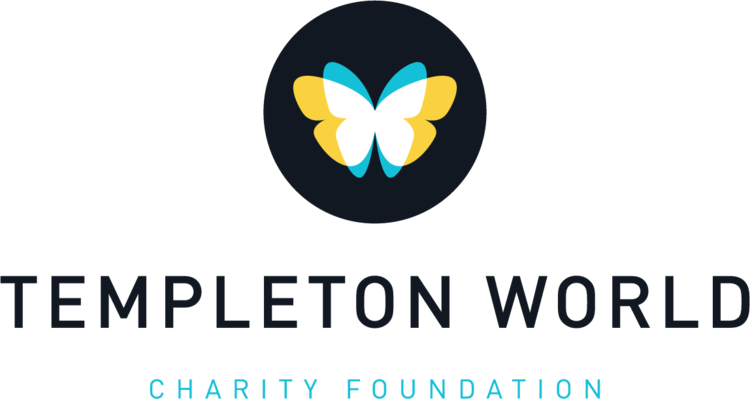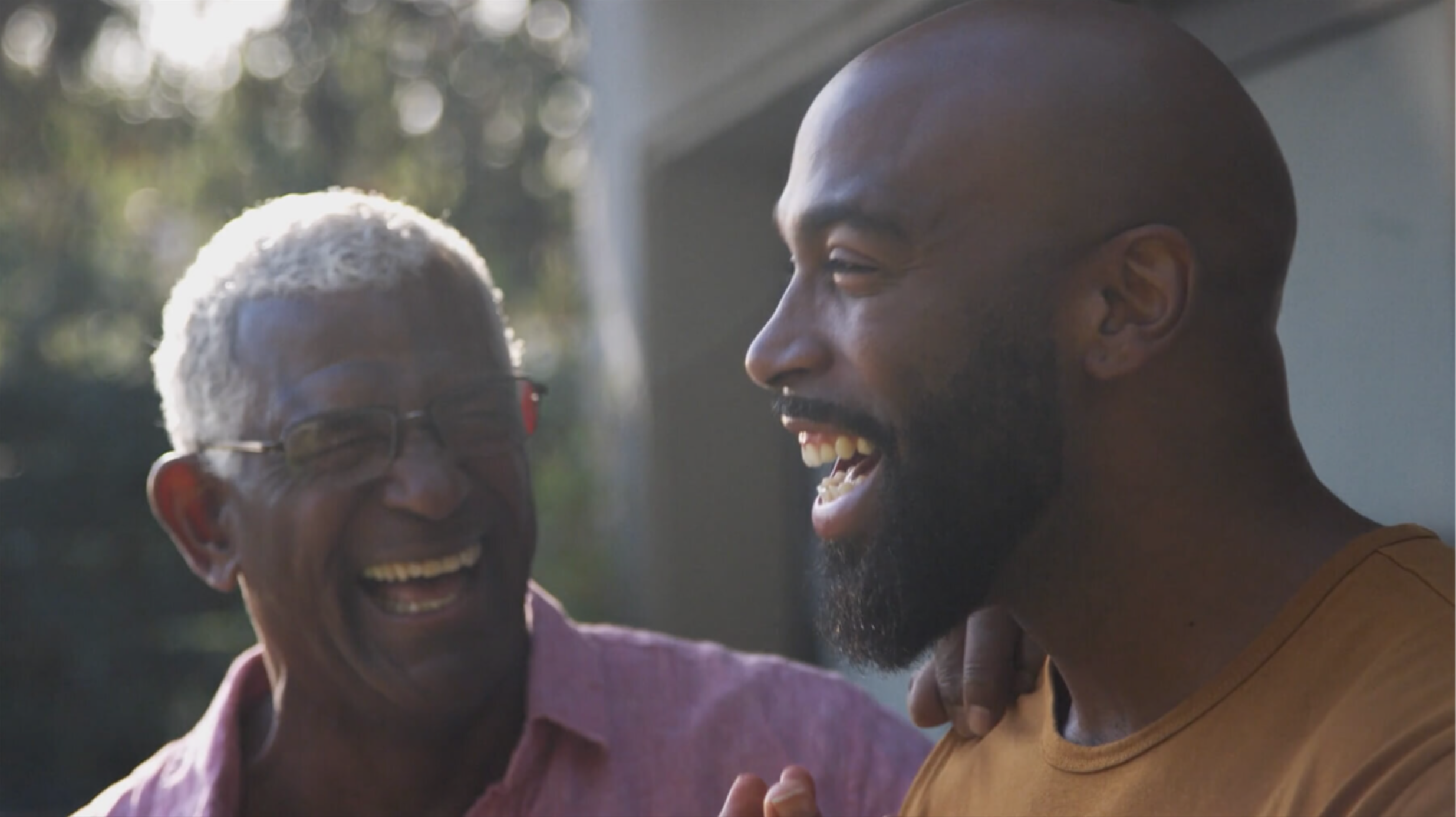PURPOSE:
The goal of this unique video project is to highlight the human stories and critical perspectives that bring to life the main mission of the Templeton World Charity Foundation: funding breakthroughs concerning the “Big Questions” of life. These stories exemplify one of Sir John Templeton’s core values: to positively impact individual lives around the world. They also communicate a grander view of flourishing -- where meaning, purpose, and truth are central tenets, not peripheral, to human progress. In addition, these stories portray both individual and societal impact -- driven by rigorous and innovative research. By sharing these personal narratives and observations, Templeton seeks to illuminate Sir John’s profound sense of optimism and hope that ‘spiritual progress is possible.’
BACKGROUND:
Since 2010, the TWCF has given over 200 grants to projects in more than 40 countries across a broad range of areas. “Stories of Impact” focuses on high profile projects funded by TWCF around the globe, as well as a “Conversation” with Andrew Serazin, the President of TWCF.
Projects
Innovations for Human Flourishing
What is Human Flourishing? What does it mean? How can we understand how humans can flourish under adverse conditions? Can science examine a concept as diverse and broad as flourishing? What innovations for humanity are possible if we truly understand the concept of flourishing?
With this 15-minute video, journalist Richard Sergay kicks off his latest documentary series on the subject of Human Flourishing, and what it means to an array of global luminaries in fields including psychology, medicine, spirituality, and the arts. Throughout the course of this series, we will hear from leaders like jazz legend Wynton Marsalis, University of Pennsylvania Character Lab’s director Angela Duckworth, Harvard’s director of Human Flourishing Professor Tyler VanderWeele, co-inventor of the Internet Dr. Vint Cerf, and Alvin Ailey American Dance Theater’s Emerita Director Judith Jamison.
There is a rich historical discussion on what constitutes flourishing and the good life. Today flourishing encompasses domains of strong relationships, meaning and purpose, happiness and life satisfaction, as well as good physical and mental health. Across traditions, social scientists, researchers, spiritual leaders, and other thinkers agree: flourishing goes beyond individual happiness to encompass a life-view with a broader context — including considering humanity’s place and purpose in the universe.
The conversations featured in this series illuminate the connection human flourishing has to strong social relationships and a sense of community; to listening well to each other; to imagination, curiosity, and the sublime; to connecting to a higher purpose. We’ll learn how flourishing isn’t static, but is a practice of growth, cultivating character-building traits and virtues. We’ll hear how leading purposeful lives, rich with love of learning, empathy for others, spiritual bravery, and meaningful work is leading us in the direction of flourishing, towards collective creativity, expanding innovation, and improving the world we all share.
The roster of luminaries featured in upcoming videos will include African human rights activist Hafsat Abiola, Harvard social scientist professor Arthur Brooks, founder of The Chopra Foundation Dr. Deepak Chopra, Bishop of Oxford Rt Revd Dr. Steven Croft, AGRA President Dr. Agnes Kalibata, first woman president of Ireland and chair of The Elders Mary Robinson, Yale University cognitive scientist Professor Laurie Santos, and OECD education leader Andreas Schleicher.
The Challenges for Human Flourishing
In this Stories of Impact episode, an array of global luminaries in a broad range of fields such as psychology, technology, education, spirituality, and the arts lend their perspective on what flourishing means and what a flourishing world could look like in specific areas like Education, Technology, Gender Equality, Food Security, and Climate Change. A variety of thought leaders voice their wisdom, including African human rights activist Hafsat Abiola; co-inventor of the Internet Dr. Vint Cerf; founder of The Chopra Foundation Dr. Deepak Chopra; Bishop of Oxford Rt Revd Dr. Steven Croft; President of Rensselaer Polytechnic Institute, The Honorable Shirley Ann Jackson; AGRA President Dr. Agnes Kalibata; internationally acclaimed musician and advocate of American culture Wynton Marsalis; first woman president of Ireland and chair of The Elders Mary Robinson; Yale University cognitive scientist Professor Laurie Santos; and OECD education leader Andreas Schleicher.
The Power of Listening in a Polarized World
When we are listened to well, we flourish
New research is helping to build a deep and scientific understanding of what listening is, when and why it matters to the well-being of people, and in what circumstances.
In this video from Templeton World Charity Foundation’s “Stories of Impact” series, researchers Netta Weinstein, Associate Professor in Psychology at the University of Reading, and Guy Itzchakov, an assistant professor in the Department of Human Services at the University of Haifa offer a look into the nuances of the listening process, exploring the roles both the speaker and the listener play in conversation.
Listening to Reduce Polarization
The practice of high-quality listening during disagreements reduces polarization. Netta Weinstein points out that it's important while listening "to think about not just the quiet parts, but the parts where we talk. Ask good questions. Try to think of questions that will benefit your speaker rather than your curiosity." Asking how questions creates a more exploratory atmosphere, as opposed to asking why questions, which elicits feelings of defensiveness and the need to explain.
Guy Itzchakov has been intrigued over the course of his studies by “The Boomerang Effect,”a phenomenon where people try to change the attitudes of others by arguing with them. This leads to the opposite result, creating defensiveness, says Itzchakov. The attitude of the recipient becomes even more extreme, in the opposite direction of the intention of the message provider.
A Powerful Tool to Support Human Flourishing
"In an ideal world, we listen from a place of humility," says Weinstein. She and Itzchakov hope that the listening training they've been working with will bring about change, harnessing high-quality listening as a powerful tool for reducing polarization and supporting human flourishing. They'd like to see the people that received the training "serve as social agents so one good listener can have a downstream effect that's contagious, for the family, for the workplace, and for the community," says Itzchakov.
Weinstein and Itzchakov were two awardees of Templeton World Charity Foundation’s Grand Challenges for Human Flourishing. Their research has helped inform our latest initiative called Listening and Learning in a Polarized World. For more, go to templetonworldcharity.org/our-priorities/listeningandlearning.
Religion Remixed: Spirituality, Science and Innovation for a Changing World
Science tells us that practicing spirituality is vital to human flourishing. But do we need religion to do it? Templeton World Charity Foundation asks this question as we seek to expand scientific understanding of how the practice and benefits of religious and spiritual exercises are linked to outcomes associated with flourishing.
Co-founders of Sacred Design Lab, Reverend Sue Phillips and Casper ter Kuile; and Kenneth Pargament, Professor emeritus of psychology, Bowling Green State University share their research and observations with journalist Richard Sergay in this episode of the “Stories of Impact'' series.
There is a “rising group in the United States of people who call themselves spiritual,” notes ter Kuile. To Prof. Pargament, spirituality is “a yearning for something sacred. We can think of the sacred including things like nature, virtues— love, compassion, gratitude… That process of searching for, discovering, and sometimes transforming that relationship with the sacred is the heart and soul of spirituality.”
“We noticed that more and more people were engaging in communities that were ostensibly secular whether it was fitness communities, justice groups, or art and creative groups, but when you looked closely it actually looked quite religious in terms of what was happening there— people were getting married, they were looking after one another through the biggest transitions of their lives, and so we started to look at it really as much less a decline of religion and more as a transformation of religion,” ter Kuile shares.
Rev. Phillips feels “it does a great disservice to spiritual exercises to think of them just in terms of their functional value because most spiritual and religious exercises take place in a vast cosmology of ideas. This is one of the challenges in the science of spiritual flourishing actually— how to study the mechanics of why certain spiritual exercises work without decontextualizing those practices so much that they become unrecognizable parts of that much larger thing.” It’s vital to “move beyond just personal intuition about it to scientific study,” says Pargament, “because religion and spirituality do contain, I believe, gold nuggets that can be mined more efficiently and effectively and brought to bear on people in their lives.”
Do We Actually Need Adversity to Flourish?
We may think of flourishing as a state of happiness. But how do difficulties, the ups and downs of life, and post-traumatic growth impact our capacity to flourish?
We hear from internationally acclaimed musician and advocate of American culture, Wynton Marsalis; Yale University cognitive scientist, Laurie Santos, President of Women in Africa and Nigerian Human Rights Activist, Hafsat Abiola; Harvard social scientist professor, Arthur Brooks; Bishop of Oxford, Rt Revd Dr. Steven Croft; University of Pennsylvania Character Lab’s founder and CEO, Angela Duckworth; President of Rensselaer Polytechnic Institute, The Honorable Shirley Ann Jackson; and AGRA President and UN Special Envoy, Agnes Kalibata in this episode of Templeton World Charity Foundation’s “Stories of Impact'' video series. They discuss how character strengths like perseverance, acceptance, determination, and resilience can encourage us to flourish, even in the face of adversity.
Purpose requires learning, growth, challenge, and tension, which are often found while enduring adverse situations. We need purpose in our lives to truly flourish. It is also from adversity that we can develop grit. This allows us to work towards something so meaningful that you persevere despite setbacks.
Now more than ever, we are reminded that a flourishing life is not always a uniformly happy life. Flourishing means negotiating a range of experiences. Moments of peace and happiness and joy in our lives are needed in order to sustain us through the more difficult areas. In times of difficulties, it's useful to have strategies for navigating negative emotions.
The Measurable Benefits of Shabbat Dinner for Connection and Renewal
In an age of technology-driven isolation and increasing polarization, is it possible that a religious ritual thousands of years old can help people feel more connected?
Through a research–practice partnership with OneTable, a team led by Dr. Arielle Levites, Managing Director at the Collaborative for Applied Studies in Jewish Education at The George Washington University, is investigating whether and how Shabbat dinners foster social connection and combat the epidemic of loneliness among young adults.
In this Stories of Impact video, the team discusses what they’ve learned so far, and Shabbat dinner participants share their experiences.
“We’ve found that any kind of gathering is beneficial for mitigating loneliness and building a sense of social warmth and social connectedness. But Shabbat dinner is actually something that yields more benefits than other kinds of social things that you can do,” says Dr. Levites.
Shabbat is the Jewish day of rest, observed from Friday evening to Saturday evening. One of its most defining traditions is the Friday night meal — Shabbat dinner — when family and friends gather to share a communal experience.
“After an intensive work week, the ritual of Shabbat dinner creates an invitation for a pause to literally take a deep breath, to gather with people you love or are getting to love around the table, to slow down,” says Aliza Kline, founder and former CEO of OneTable. OneTable is a nonprofit that helps young adults find, share, and enjoy Shabbat dinners (think “Airbnb for Shabbat.”)
Funded by Templeton World Charity Foundation, the study includes interviews, focus groups, and experiments with more than 1,000 participants. Early insights indicate, the benefits don’t depend on rigid ritual requirements — the act of gathering itself is what matters most. The weekly rhythm of Shabbat provides a “container” that fosters belonging and reduces loneliness.



